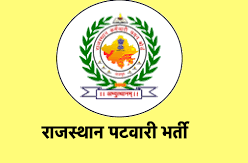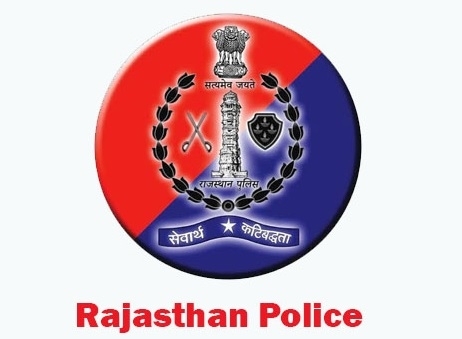RPSC RAS Preparation Tips 2022 for the candidates who are planning to appear for the RPSC RAS exam 2022. RAS exam is one of the toughest exams conducted by RPSC. Candidates must have a preparation strategy in place that will allow them to cover the most topics in the least time.
Our experts at Byju’s Exam Prep have created these preparation tips to help candidates plan their preparation. These tips will prove very helpful to the students and allow them to realistically set their goals and expectations. Read below to find out more about how to properly prepare for the RPSC RAS Exam 2022.
Table of content
RPSC RAS Preparation Tips 2022
Candidates who are preparing for the RPSC RAS exam can check the best preparation strategy and tips provided here. It is important to plan your preparation and religiously follow it for the best result. Here we have provided the step-by-step preparation tips for the RPSC RAS 2022 exam. The Preparation Strategy & Tips are prepared by our expert faculty. Candidates can trust the strategy for the best result. Check the detailed RPSC RAS preparation tips here.
The Rajasthan Public Service Commission (RPSC) conducts the Rajasthan Administrative Services exam every year to recruit candidates for various posts such as Rajasthan Administrative Service (RAS), Rajasthan Taxation Service (RTS), Deputy Collectors DSP, etc. Lakhs of aspirants apply for the RPSC RAS exam. The RPSC RAS exam is considered one of the toughest exams in Rajasthan state.
How to Prepare for RPSC RAS Prelims Exam?
The RPSC RAS prelims exam has 200 questions that come from General Science and General Knowledge. Candidates should follow the below-mentioned tips for the best preparation.
- For General Science, study the NCERT books and solve previous years question papers. Also, cover the syllabus from Lucent GK.
-
- Study the current affairs and cover as much as you can. Make notes and try to relate them with the static GK for better understanding. Study the current affairs in Rajasthan and India separately from newspapers and magazines.
- Current affairs play a huge role in RAS prelims exam. Read The Hindu everyday and compile notes.
-
- For General Studies, have a plan for each subject that comes under it. In the rest of the points, we have explained how to go about each one.
-
- For History, make sure to divide it into different sections – World History, Medieval History, Ancient history and Modern History of India. Use NCERTs to prepare these sections. Take up Art & Culture separately.
- For Geography, refer to Atlas and use NCERTs. Study the geography of Rajasthan and India separately.
- For Polity, refer to Indian Polity by Laxmikant.
- For Economics, Study from NCERT and carefully follow the budgets released by the Indian Central government and the Rajasthan State government. You can also go through Economic Survey to level up.
- For Logical Reasoning, practice as many mock tests as possible.
-
How to Prepare for RPSC RAS Mains Exam?
Follow these preparation tips for RPSC RAS Mains Exams.
- Do not wait for Prelims to be over before you start preparing for Mains. Plan your GS subjects in advance and keep thoroughly studying them.
- Since it is a written exam, practice your writing skills and writing speed.
- Look at previous years question papers and start writing sample answers for them that are comprehensive and well-written.
- Check how much time it is taking you and practice accordingly. It is important to make sure you are able to write comprehensive answers within the set time limit.
How to Prepare for RPSC RAS Interview?
Follow these preparation tips for RPSC RAS Mains Intevriew.
- Keep yourself updated with the current events of the country as well as of Rajasthan state.
- Revise the whole RAS syllabus and understand the concepts so you can apply them practically if you are presented with a problem in the interview.
- Ensure that you practice in front of a mirror to check your body language and expressions while speaking. Confidence is the key in these interviews so practice reflecting that through your body language.
Important Preparation Tips for RPSC RAS Exam 2022
It is very important to know all the aspects related to the RPSC RAS examination before beginning with the preparation as it helps assess fast pacing and concluding the preparation. Like UPSC, the RPSC Rajasthan Administration Service has three stages of the examination.
- Preliminary Examination
- Main Examination
- Personality Test
Complete understanding of the RPSC RAS exam pattern and the RPSC RAS syllabus of examination helps prepare and excel better, so is true with the RPSC RAS.
Best Preparation strategy to Follow For RPSC RAS 2022
Following are the tips to strategize and prepare better for the RPSC examination. Candidates must follow the strategy without any lack, otherwise, they will not get the best results.
1. Power of previous year paper
Analyzing past year RPSC questions papers is important to get hold of the topics that are frequently asked in any examination. This is the smartest way to prepare for the RPSC exam rather than the conventional subject-wise manner (which is generally practised in the graduate examination). We have also provided the previous year’s papers of RPSC RAS.
2. Follow the trend
It is crucial to go through the detailed RPSC RAS exam pattern of all three stages of the examination. It is important to be aware of the pattern like the number of questions asked in different papers, marking scheme, timing, mode of paper, etc. It helps a candidate plan & prepares in a better way. Check out the detailed exam pattern.
|
Exam Aspects |
RPSC RAS Preliminary Examination |
RPSC RAS Mains Examination |
|
Number of papers |
One
|
Six
|
|
Total Marks |
200 |
800 |
|
Exam Duration |
3 Hours |
12 Hour (3 Hour Each paper) |
|
Mode of Examination |
Objective |
Subjective/Descriptive type |
3. Macro & Micro timetables: By this, we mean never make a rigid timetable with many stringent aspects of covering subtopics within a particular time frame of minutes. Be flexible yet goal-oriented. Make a study plan in such a manner that 2-3 revisions are ensured.
4. Practice Mock Test: This is the most important part of the preparation journey. Giving mocks just not check your current knowledge but also helps to identify your key mistakes. If possible, do attempt sectional tests per day; do not merely keep covering the syllabus. Try to analyze RPSC RAS mocks and identify your week areas and work on them.
5. Time Management: Develop a habit of reading, studying, and memorizing the theoretical aspects but do not forget to retain them in long-term memory. Remember, the RPSC RAS examination is a year-long cycle and candidates need to recall and express the learning after 12 months sometimes. So plan your things accordingly.
6. Make a habit of writing notes: Keeping notes and revising through the notes helps revise better. Self-made notes are so handy that you can easily revise. It also helps to retain and recall in a better way, and in the examination gives an edge.
7. Revision: After completing 60 – 70% of the RPSC RAS exam syllabus, a candidate is advised to opt for simulated test series, meaning attempting full-length tests. So, to develop that understanding and practice, learn by attempting the mocks in real exam-like situations. Remember revision is the key to success.

 Install
App
Install
App











